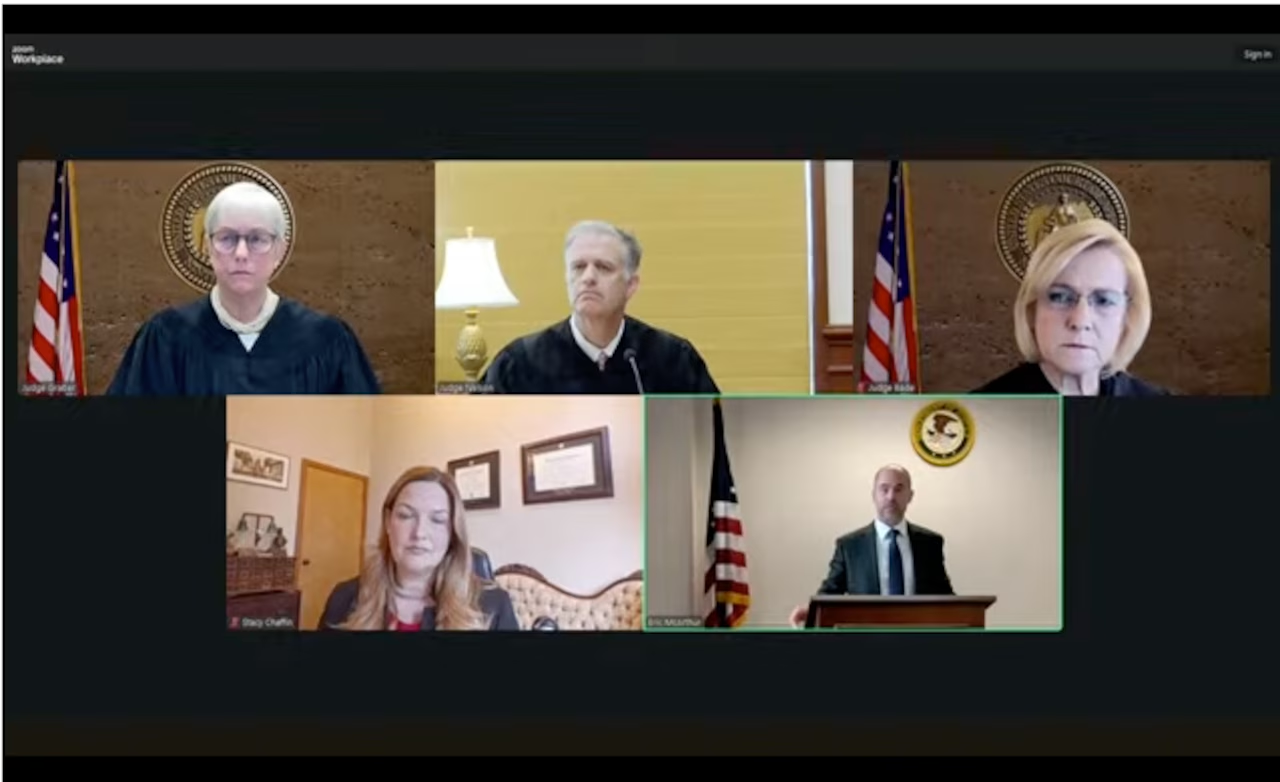PORTLAND, Ore. — A panel of federal appeals court judges appeared divided Thursday over whether to uphold or overturn a lower court order that temporarily blocked President Donald Trump’s plan to deploy Oregon National Guard troops to Portland amid ongoing protests outside the city’s U.S. Immigration and Customs Enforcement (ICE) facility.
During a 73-minute hearing before the 9th U.S. Circuit Court of Appeals, two of the three judges — both Trump appointees — signaled skepticism toward U.S. District Judge Karin J. Immergut’s earlier ruling, which found no legal basis for Trump’s emergency mobilization.
Judges Bridget S. Bade and Ryan D. Nelson challenged Immergut’s decision to limit the president’s justification for deployment to events occurring at the ICE facility in September, rather than considering incidents from earlier in the summer when protests were more volatile.
Also Read
“Why should the President’s assessment of a continuing threat be confined to a single month when the unrest has clearly been an ongoing issue?” Nelson asked, questioning the scope of the injunction.
Bade echoed that concern, suggesting the lower court’s analysis “appears too narrow” and may have “improperly constrained executive discretion” in national security matters.
The third member of the panel, Judge Jacqueline H. Nguyen, pressed the administration’s attorney to clarify what evidence supported Trump’s claim that Portland was “under siege.” Nguyen noted that federal and state officials — including Oregon’s governor and mayor — have consistently described the protests as largely peaceful.
“Is there any documentation that supports the use of National Guard troops under these circumstances?” Nguyen asked.
The Justice Department argued that the President acted within his constitutional authority as commander in chief and that Immergut’s injunction “improperly second-guessed” executive judgment during a period of heightened tension.
Attorneys for Oregon Governor Tina Kotek countered that the federal government’s actions amounted to an unlawful usurpation of state control, violating the Posse Comitatus Act and long-standing principles of federalism.
“This is not a national emergency — it’s a political stunt,” Oregon Solicitor General Ellen Rosenblum said. “The governor never requested assistance, and the president cannot impose it unilaterally.”
The three-judge panel gave no timeline for issuing a ruling, though legal experts say a decision could come within days given the urgency of the case.
The outcome could have significant implications for federal-state relations and presidential authority over domestic troop deployments.
For now, Immergut’s temporary restraining order remains in effect, preventing the Trump administration from sending troops to Portland until the appellate court decides whether to lift or uphold the block.












